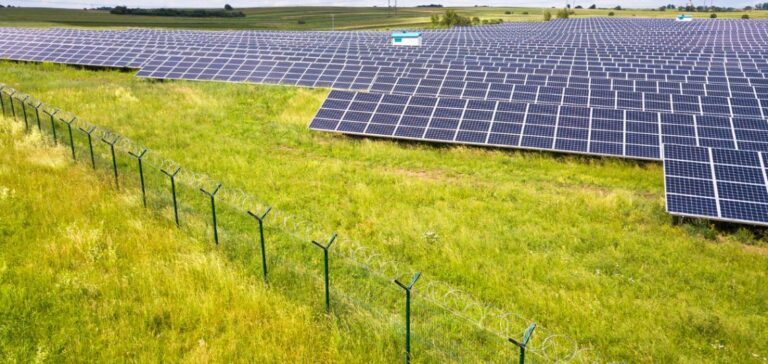EDP Renewables North America (EDPR NA) has completed three major solar projects in the United States, adding a total installed capacity of 400 megawatts (MW). Microsoft has signed virtual power purchase agreements (VPPAs) for 389 MW of this output, further expanding its renewable energy portfolio. These projects align with EDPR NA’s strategy to develop large-scale energy solutions for the technology sector.
Deployment of three solar plants in Illinois and Texas
Two solar projects, the Wolf Run Solar Project (140 MW) and the Hickory Solar Project (110 MW), have been commissioned in Illinois. Located near Jacksonville and Jerseyville, respectively, they have been operational since last November. The third project, the Cattlemen II Solar Project (150 MW), near Austin, Texas, began generating power in December.
The electricity produced by these facilities will be fed into the grid and paired with renewable energy credits (RECs). Microsoft’s acquisition of these RECs ensures long-term access to renewable power.
Economic impact and contractual structure
Beyond energy production, these projects contribute to local economic development. Wolf Run and Hickory created 500 construction jobs and now provide five permanent positions. Additionally, $4.8 million has been paid to landowners through lease agreements, with several million more expected in local tax contributions.
In Texas, Cattlemen II generated 300 construction jobs and is set to provide further tax revenues to local municipalities, benefiting schools and public infrastructure.
A differentiated contractual approach
One of the agreements, signed for the Hickory project, is based on an Environmental Justice Power Purchase Agreement (EJ PPA) developed in partnership with Volt Energy Utility. This model includes funding for the Sharing the Power Foundation, which supports local initiatives for energy access and workforce training in the renewable energy sector.
The commissioning of these facilities highlights the increasing commitment of major technology companies to investing in large-scale energy solutions while strengthening their partnerships with independent power producers.






















